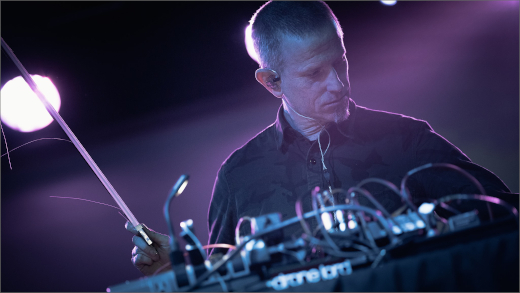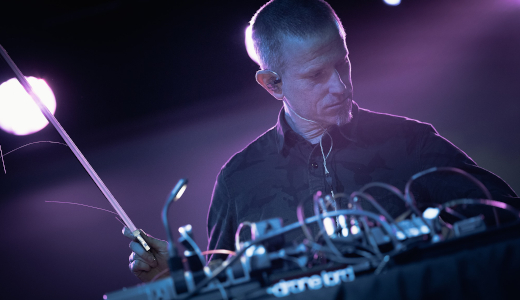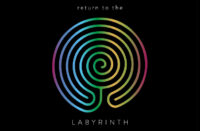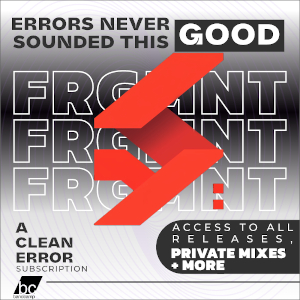Nathan Moody is a composer/musician and sound designer that loves to build worlds and create mental cinema using sound. Fresh off the heels of his latest release Shadow No Light Could Make, Chang Terhune got together to talk about the album, Nathan’s journey as an artist, and a whole slew of other things.

An uneasy, dreamless somnambulistic soundscape of dusk shrouded shapes
Nathan Moody is a composer/musician and sound designer that loves to build worlds and create mental cinema using sound. He’s also a mastering engineer at Studio Obsidian who’s worked in music, film, television, podcasts and pretty much anything else requiring fine audio mastering. In March (2021) he released A Shadow No Light Could Make, a stunning musical work of ever-unfolding depth and beauty. He and Chang Terhune (aka Cathode Ray Tube) got together to talk about the album, Nathan’s journey as an artist, and a whole slew of other things.
CRT :: How’s it going?
Nathan Moody :: It’s going pretty well. It’s nice to finally connect with you.
CRT :: I know! It’s been hectic!
Nathan :: I also mean just in terms of over the several years we have known each other online and stuff it’s nice to just finally put a voice to the name.
CRT :: That’s awesome. I’m psyched too. I’ve been thinking about this impending chat a lot. Well, so how’s your pandemic going?
Nathan :: It’s actually fine. I’m a mastering engineer by day. I can’t do my work if I’m not in this room by myself. The only thing that’s changed is our social life. But for me for what I do for a living, that really hasn’t changed that much.
CRT :: Yeah, it’s interesting how that works. It’s been up and down for me but I have a friend who lives a couple of blocks away. We’ve known each other since we were in high school, and I’m like “How are you holding up during this?” He’s like “Nothing is different. I’m a recluse by nature.”
Nathan :: Wow. Yeah.
CRT :: Now, let’s talk about Nathan.
Nathan :: Oh, that guy? [BOTH LAUGH]
CRT :: That guy! I’d just like to hear a little background from you of how you came to be into music and then perhaps sort of how you got into mastering engineering.
Nathan :: Okay, you want me to tackle the journey into music first?
CRT :: Yeah, you can start all the way from Maine, or wherever you were born, and move on from there. However you want, however far you want to go. If I feel the need to ask anything, I will, of course, interrupt and ask a question, as humans do.
Nathan :: Sometimes that’s the only way to stop me.
CRT :: Exactly! Me, too!
Nathan :: My earliest memory of audio, sound, and music was sitting on my dad’s lap, singing children’s songs while he played classical guitar into a reel-to-reel tape recorder.
CRT :: Oh, wow.
Nathan :: That seemed fun, but honestly, I was so young. Nothing gripped me about it yet. I just remember having just the most amazing memories of the intimacy and playing with the proximity effect of, “I could make my voice really loud if I had a microphone.” I started to get a sense for that cause and effect of human action and the recording medium’s response.
CRT :: Right, yeah.
Nathan :: Then, fast forward through High-School where I was studying and got really quite good at the saxophone. I was sight-reading and improvising.
CRT :: Oh, wow. You have a solid musical background, basically?
Nathan :: Yeah. All of those improvisational music and sight-reading abilities I have since lost just through lack of use. I’m picking them up again now, so many years later. In High School, in addition to being fairly musical in school, I was one of those kids with a dual cassette deck, and I would make just these, mostly for humor value, this very non-sequitur music concrete collages. Not music for mixtapes for friends or anything but instead grabbing bits off of the radio, spoken word bits of albums that I own, and making kind of funny little 15 minutes pieces. Then maybe a result of me being a huge Monty Python fan as a kid where you watched the TV show and every single sketch has a segue, I think the Monty Python TV show is entirely about the transition from one thing to the next.
CRT :: Yeah, the segue, the non-sequiturs.
Nathan :: Yeah. I wound up kind of doing audio versions of that. Throughout my professional career—I was never an audio professional until relatively recently—but at every job I ever held where I design a piece of software I would do all the sound design. In the interactive installation, I would do the soundtrack for it. In reaching a career apex in the interactive design world, I really asked myself how do I want to spend what working years I have left? How can I do something that I’m deeply passionate about? The oddly consistent things for every job I’ve ever held has actually weirdly been audio and music.
I’ve been a sound designer for a decade, and I’ve done little scoring projects here and there. I’ve been making and releasing music since the late ’90s. It just seemed like this was the time and opportunity where I could leverage these years of being an audio generalist. I try to bring that maximum breadth of knowledge to an industry and a role that actually seemed to be fairly immune to ageism, and that was mastering.

CRT :: Yeah, this is true. You know the god of mastering Bob Ludwig is here in Southern Maine?
Nathan :: Yes!
CRT :: He seems to not show any signs of stopping. Were you born and raised in Maine or did you grow up or born elsewhere?
Nathan :: I grew up in Maine. I moved there after I was born in Hartford, Connecticut. I think I moved there when I was four. I was in Maine until I left for college. I grew up in both Ellsworth and Bangor.
CRT :: Ah, okay. I always imagine people like you, before I got to know you a little better and other people, like William Basinski, Scott Monteith (Deadbeat), or Jack Dangers (Meat Beat Manifesto) just emerged fully formed from the womb as an experimental musician, with this brilliant insight into how sound works and engineering but I realized more and more that everybody starts off as a kid of course then they go through a rocky growth period and become who they are eventually. Would you say that as a guy who’s doing what you’re doing now, growing up in Bangor and Ellsworth, were you an oddball? Were you out of sorts? Or were you just like a normal kid who ended up kind of going from High School in an orchestra or whatever to more experimental stuff?
Nathan :: Oh, I was always an outcast and a misfit. I never found my tribe until discovering other people into extreme and underground music in High School.
CRT :: Okay. Interesting.
Nathan :: I was always the kid who would get followed home from school and beat up.
CRT :: (LAUGHS) I only laugh because it was similar for me.
Nathan :: All of those things at a very early age prepared me and revealed to me that culturally where I grew up was not where I really belonged.
CRT :: Right.
Nathan :: Seeing how friends of mine in High School that I bonded with who were people of color, or gay, seeing how much worse they got it than I did instantly that creates bonds amongst people. I understand that they’re all being marginalized for whatever socioeconomic or social reason. That makes those bonds really strong. You wind up spending hours talking about music, theater, art or whatever it is that you culturally have in common. I think that sort of made me realize that I needed to get out of Maine, and go somewhere where there was a much broader social and artistic perspective. For me, that meant having to move to a city.
CRT :: Sure. I’m just curious, was there a day or a year in your teen life where you had that realization? Was it gradual? Was it like a thunderbolt and then you were counting the seconds until after graduation when you took off or parts unknown? How did that work?
Nathan :: That’s a good question. I would say there was kind of two moments. One was actually when a friend of mine who I did the theater projects with came out as gay. Seeing the social implications for him of making such a bold decision in the 80s in Maine really started the clock ticking for me in terms of needing to feel that I had to be part of a community that was much more tolerant and open.
Then, I think the other one was the fact that growing up as a creative kid, and trying to figure out, actually pretty early on, how could I actually pay the rent, being creative? The only model for that kind of career that I was ever exposed to was being an architect.
CRT :: Oh, interesting.
Nathan :: Which, of course, is not that creative.
CRT :: It’s like you’re almost like a mathematician in a certain way.
next page >>














![Luke’s Anger :: Ceiling Walker EP (Love Love) — [concise]](https://igloomag.com/wp/wp-content/uploads/2025/04/lukes-anger-ceiling-walker-vinyl_feat-75x75.jpg)

![Ndorfik & madebyitself :: Solos EP (People Can Listen) — [concise]](https://igloomag.com/wp/wp-content/uploads/2025/04/ndorfik-madebyitself-solos_feat-75x75.jpg)




